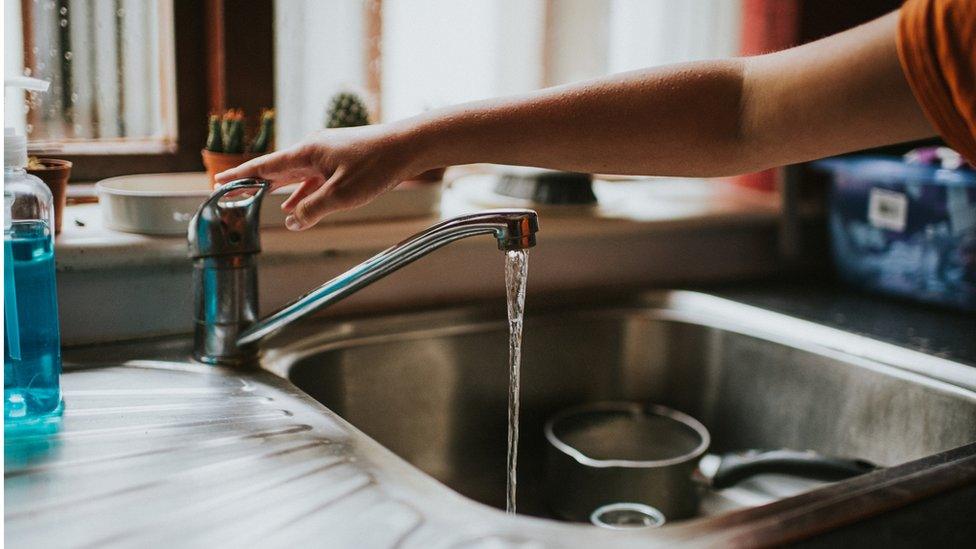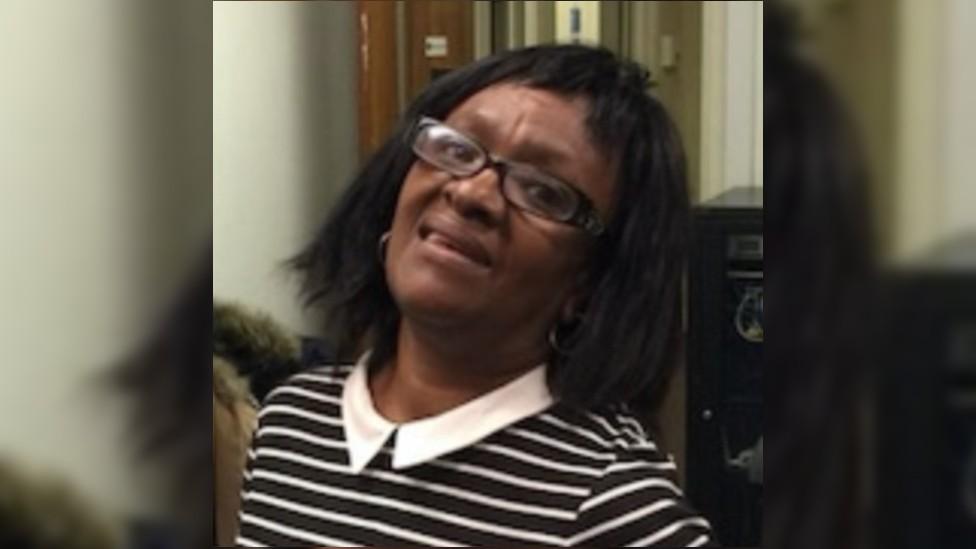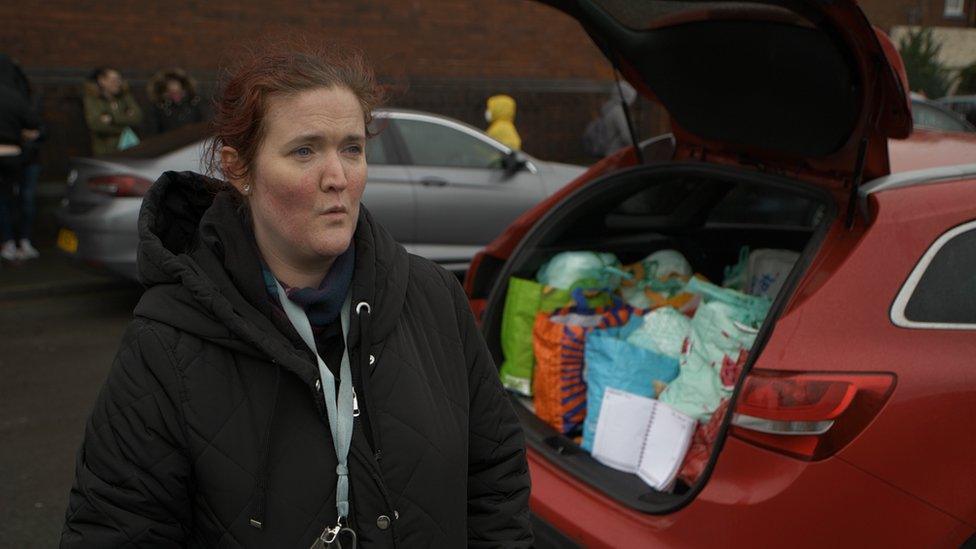Millions cannot afford water bills, says watchdog
- Published
- comments

More than a million households are struggling to pay their water bills, a consumer group has said.
Some people have even had to skip meals to pay for water, the Consumer Council for Water (CCW) said.
It is calling for a single "social tariff", based on a percentage of people's incomes to lower the costs.
The government said it would work with industry to "build a stronger, better and fairer water service for those who need it most".
According to the CCW, there are about 1.7 million people in "water poverty", which it defines as having to spend more than 5% of their income after housing costs on water bills.
However, about three million households are in danger of slipping into this category.
These include people on Universal Credit, where any small shocks to their income could tip them over the edge, said Andy White, senior policy manager at CCW.
He said about 260,000 people were getting help with their bills from a patchwork of social schemes run by water companies.
However, it is a "postcode lottery" as to how much help people can get - and the watchdog believes a social tariff would tackle this.


There has been significant focus in recent years on fuel poverty, and pressure placed on private companies to make sure the most vulnerable are protected. This research shifts that spotlight onto the affordability of another essential utility - water.
Whether you are part of the 1.5 million households classed as currently in water poverty or the 3 million who are on the cusp of it, where you live can make a huge difference to the help you receive.
Some companies ask struggling households to pay just 20% of a bill, while in other areas they still face the full charge. Some have a lowest bill guarantee, but many companies don't, and only half of the providers have a crisis fund for those most in need.
Although most of these changes could be implemented immediately by companies themselves, the government would have to bring in new laws to create a social tariff which standardised that basic payment rate.

CCW chief executive Emma Clancy said: "We have a golden opportunity to create a simpler and fairer system and end the indignity of people skipping meals or other essentials to pay their water bill.
"Many people are craving certainty in these difficult times and these proposed changes would give millions of households one less thing to worry about and greater peace of mind - whatever the future holds."
The tariff would either be taxpayer funded, or taken from a single pot created by taking money from everyone's water bill in England and Wales.
CCW has conducted independent reviews of water affordability in England and Wales. It found that five out of six customers who cannot afford their water bills are not getting the help they need, despite a significant rise in company support schemes over the past decade.
It also found that some of the schemes were hampered by insufficient funding and large regional variations in eligibility criteria.
Those who are eligible get an average bill reduction of £190.
CCW also urged the industry to do more to prevent households slipping into water poverty.
That could include giving customers greater choice over how they pay their water bills through technology, and providing tailored financial help.
Companies should also write off water charges while benefits claimants are awaiting their first Universal Credit payment, it added.
'Affordable bills'
Environment minister Rebecca Pow said she would consider the recommendations and work with the sector "to build a stronger, better and fairer water service".
Christine McGourty, chief executive of Water UK, which represents water companies, said: "Levels of support for customers have never been greater.
"Over the past year water companies have gone to unprecedented lengths to help hundreds of thousands of household customers who could least afford their bills, with support such as payment breaks and extra assistance for those most in need - but we know there's more to be done."
Gillian Cooper from Citizens Advice said: "Water is essential, but sadly we know not everyone can easily afford it.
"As households continue to feel the impact of the pandemic, people facing financial difficulties need better support to help them pay their bills.
"CCW's proposal to establish a single social tariff would help make water bills affordable for all households on low incomes."
Related topics
- Published22 March 2021

- Published9 February 2021
